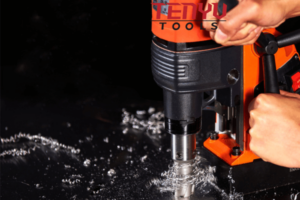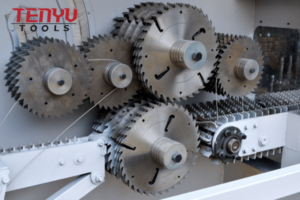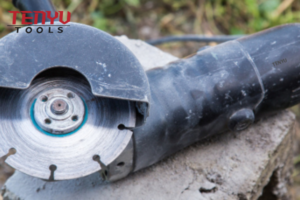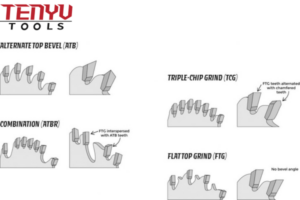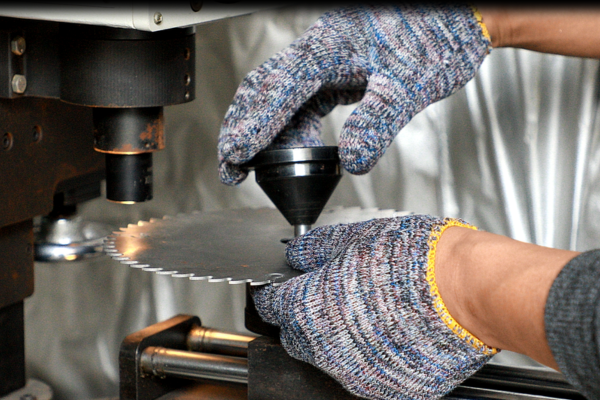
What Makes a High-Quality Saw Blade Manufacturer?
Finding a reliable saw blade manufacturer is essential for ensuring precision, durability, and consistency in your projects. Learn what qualities to look for in a manufacturer that meets industry standards.
What Are the Key Factors to Consider in Choosing a Saw Blade Manufacturer?
When selecting a saw blade manufacturer, consider the quality of their production process, the materials they use, their lead times, and their customization options. High standards in these areas ensure you receive a product that meets your specific needs.
Transitioning to the next step in choosing a supplier, let’s explore the core factors in more detail.
How Do You Evaluate a Saw Blade Manufacturer?
When choosing a saw blade manufacturer, several factors come into play. Let’s look at:
- Quality Control and Testing
- Manufacturing Capacity
- Customization Options
- Delivery Times
How Does Quality Control Affect Saw Blade Performance?
The precision of a saw blade directly correlates with the manufacturer’s quality control measures. Consistent testing and quality assurance processes lead to longer-lasting, more reliable products.
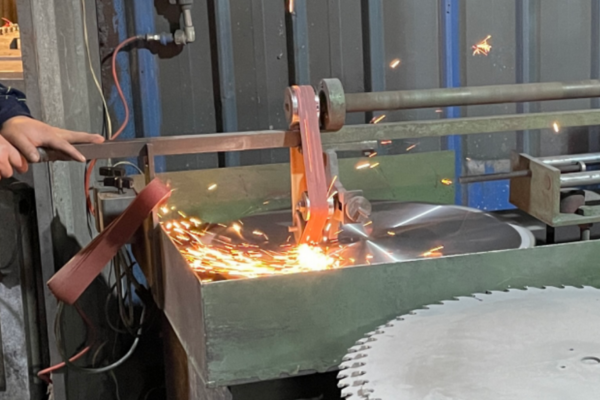
Dive Deeper into Key Selection Factors for Saw Blade Manufacturers
1. Quality Control and Testing
Quality control is a critical factor in ensuring that each saw blade1 meets the necessary standards. A manufacturer’s commitment to rigorous testing, including stress tests and material evaluations, guarantees that their blades perform reliably in various conditions.
Key Quality Control Practices
- Material Inspection: Ensuring the metal used in blades meets toughness and durability standards.
- Performance Testing: Simulating real-world use cases to ensure stability and precision.
- Visual Inspection: Checking for defects or inconsistencies in shape, size, and finish.
These quality assurance steps prevent potential failures in the field, reducing customer complaints and warranty claims.
2. Manufacturing Capacity
A manufacturer’s ability to handle large and small orders is crucial. A factory with scalable production lines ensures that your order will be filled efficiently, regardless of size.
Capacity Considerations
- Automation: Automated systems help increase production volume while maintaining consistency.
- Lead Time Flexibility: Can the supplier adjust their timelines based on demand?
- Inventory Management: A manufacturer with a large facility can manage bulk stock for just-in-time orders.
This capacity to scale production is particularly important for businesses with varying demands or those entering new markets.
3. Customization Options
Customization options such as unique packaging or branding can set your business apart. Working with a manufacturer who offers these options is essential if you want to build a distinctive brand identity.
Customization Considerations
- Logo and Branding: Ensure that your company logo can be integrated into the design.
- Packaging: Choose customized packaging to better appeal to your target market.
- Blade Configuration: Some manufacturers offer tailored tooth designs or coatings for specific applications.
Having these options available adds value to your product and enhances your company’s professional image.
4. Delivery Times
Reliable and quick delivery is non-negotiable when sourcing tools like saw blades. Delays can lead to project setbacks and dissatisfaction among customers. Evaluate the manufacturer’s ability to meet deadlines, especially if you have urgent orders.
Delivery Time Assurance
- Geographical Considerations: Does the manufacturer have logistics partners in your region?
- Realistic Lead Times: Ensure the company provides clear and achievable timelines.
- Inventory Availability: A manufacturer with good stock management can offer faster turnarounds.
Fast and dependable delivery ensures your supply chain remains uninterrupted and your customers are satisfied.
Feature Comparison Table
| Saw Blade Type | Cost | Precision & Stability | Suitable Application | Application Examples |
|---|---|---|---|---|
| High-Speed Steel | Medium | High | Wood, Metal | Woodworking, Metal Cutting |
| Carbide-Tipped | High | Very High | Heavy Duty Cutting | Steel, Concrete, Stone |
| Diamond Blades | Very High | Extremely High | Hard Materials | Stone, Concrete, Asphalt |
Conclusion
Choosing the right saw blade manufacturer ensures quality, consistency, and efficiency in your business operations. Focus on quality control, manufacturing capacity, customization, and delivery times to make an informed decision.
-
refers to a fundamental component in manufacturing, and linking it to an authoritative source will provide readers with more in-depth understanding of the topic. ↩

